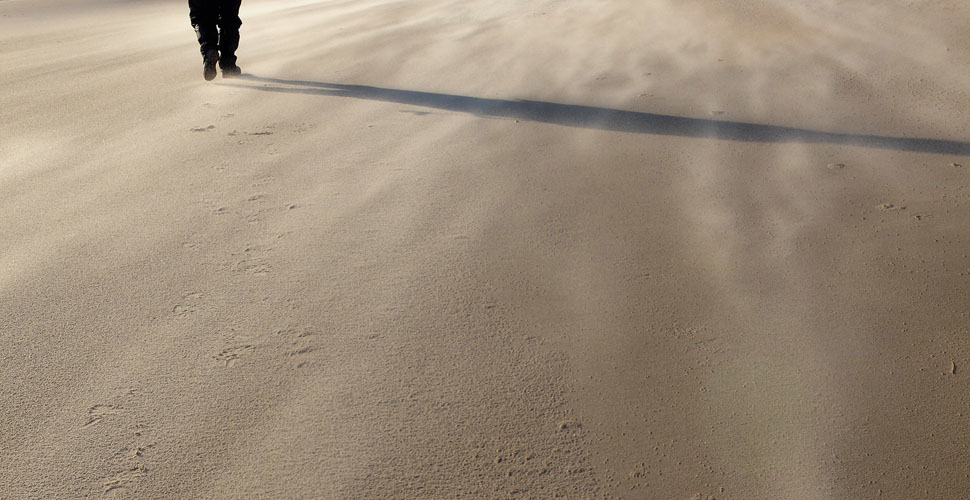We are the intrepid today on our walk along Beadnell Bay, heads down into a fierce and very wintry sou’wester chilled by the frosty ground of a clear morning. At the harbour end of the beach a chap whips up and down in a landsailer, taking advantage of the empty sands and high winds. A couple of dog-walkers make it half-way to the estuary and turn back – enough. Looking back, the sailor has disappeared and probably gone for a coffee.
Lisa’s enormous furry hat and my balaclava are today pathetic, the wind cutting a path straight to ears. A family of three black-backed gulls – which unlike other gulls don’t venture inland at all – sit hunkered by the sea and from a distance the dirty-coloured yearling looks like a small seal. Turning up towards the Long Nanny estuary, the wind finds its groove and hissing sand speeds our way in lines and waves; everything is motion.
The walk, usually an easygoing saunter along the sand, is like ascending a mountain. I can’t help thinking about The Worst Journey in the World – the account by Apsley Cherry-Garrard of the 1911 expedition to secure an unhatched Emperor penguin egg. The incredible story based on Cherry-Garrard’s journal charts the story of their trudge to the coldest place on earth that took place prior to the tragic attempt on the South Pole by Scott. With him on this journey were the two who later died on that expedition – Edward “Bill” Wilson (who, when I was 11, was my nature-loving hero), and “Birdie” Bowers.
They hauled sledges in winter dark for 60 miles, temperatures dipped as low as -60 degrees and the winds… Most of Cherry-Garrard’s teeth were shattered by the cold.
And the Emperor penguins survive there, thrive there, year after year.
It’s utterly farcical to compare the extremes they faced with our jaunt. But there’s something incredible in experiencing an eye-blink of the raw of nature. Across the way, in the North West, Cumbria has been broken up by Storm Desmond, the water literally splitting the village of Braithwaite – a favourite place of mine – apart . All the technology, all the supposed power we have (as Hamlet says, we are the very “paragon of animals”). And we are still Canute shaking his fists at the sea.
